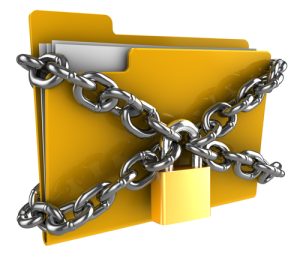In Indiana, the Senate made revisions to Expungement Bill 1482, passed it, and sent it back to the House for approval.
It seems like only a matter of time until the bill is passed into law with its bipartisan approval.
The bill proposes to completely remove low-level criminal records that happened a significant amount of time ago.
Many supporters of the bill see this bill as a second chance for ex-offenders to obtain jobs, better their future and experience life as normal adults.
It’s no secret that a felon has a harder time finding employment; the expungement bill could be life-changing for these former convicts. 
The passing of this bill would help to remove barriers that block former criminals from finding new career opportunities.
Should the bill pass, potential employers would only be permitted to ask the job applicant if they have been arrested or convicted of a crime that has not been expunged by a court.
This expungement bill would also make it an infraction for an employer to discriminate against someone who has had an arrest or conviction expunged from their record.
For employers who are worried about not being able to see the true criminal history of interviewees, there is reassurance.
The bill protects employers from all liability if they hire an expunged criminal who does wrong again.
In the state of Indiana, there are currently “sealing” laws that prevent the public from viewing a low-level, non-violent crime record after a certain number of years.
While this seems similar to the expungement law, it is different in that sealing laws apply solely to certain misdemeanors and class D felonies.
The new bill will cover high-level felonies as well.
For these higher-level cases, prosecutors would have to sign off on the expungement and any expunged criminal record will still be accessible to prosecutors and criminal defense attorneys.
There will be limitations to the bill which include violent and sex-related crimes, such as murder and incest.
In addition, the bill states that victims of crimes committed by an ex-offender have the right to object to the expungement of the individual’s record.
A provision of the bill also says that individuals hoping to have their record expunged must prove they have stayed out of trouble and have upheld a clean record for a number of years.
This will ensure that the people who truly deserve a second chance are the ones receiving it.
 Under the current version of the bill, a person who was arrested but not convicted of a crime could have their record expunged within one year after their arrest.
Under the current version of the bill, a person who was arrested but not convicted of a crime could have their record expunged within one year after their arrest.
Someone with a misdemeanor could have their record expunged within five years after the conviction and someone with a non-violent class D felony could have their record cleared eight years following the conviction.
Any persons with higher-level felonies would be required to wait eight years after their sentence was over to begin the process of having their record expunged.
There is a long history of criminals who have repaid their debt to society and truly turned their lives around, but continued to suffer the consequences of their past.
The Expungement Bill was made to prevent the discrimination of employment for former criminals and brighten their personal and professional futures.
While it still may be necessary for an individual to find an attorney to help with the process of obtaining an expungement, Expungement Bill 1482 may in fact be the light at the end of the tunnel.


It not only benefits individuals seeking redemption but also strengthens communities by promoting reintegration and reducing the social and economic costs of mass incarceration.
By expunging certain criminal records, the bill empowers individuals to access housing, education, and various opportunities that may have been previously out of reach.